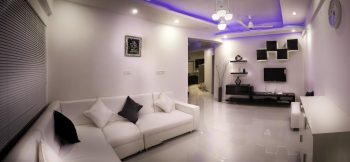The rental of furnished property, on a regular basis, by any person is considered a commercial activity, which allows the taxation of rental income in the category of BIC (industrial and commercial profits). So unlike the rental of bare real estate, the status of non-professional furnished rental company (LMNP) allows the investor to benefit from this advantageous regime, in principle reserved for companies.
The BIC regime provides for two tax systems:
Furthermore, any deficits may be set off against profits of the same type made during the same year and the following ten years.
Knowing that the real regime allows not only to depreciate the property owned according to its estimated lifespan but also to deduct the most expensive charges, rental income will be tax-exempt up to 80%.
In theory, depreciation is applied per component and is spread over an average period of 25 years. You should know that furniture and real estate are depreciable, while land (land) is not.
It should be remembered that the BIC tax regime is the one that applies in principle to businesses. But unlike companies, the depreciation recorded, until the moment of exit, does not enter into the determination of the amount of the capital gain ( capital gain = sale price – cost price ). In LMNP, you have the advantages without suffering the disadvantages.
The 2015 finance law supplemented the LMNP status. Indeed, from now on, investors who wish to acquire real estate under LMNP will have two alternatives:
The flat-rate scheme may be of interest to people wishing to obtain an interesting additional income, since the planned allowance makes it possible to postpone the taxation of half of their rental income.

